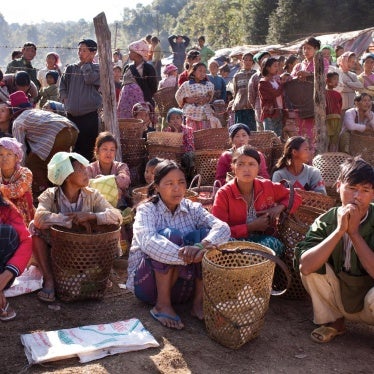Since President Mahmoud Ahmadinejad took office in 2005 - authorities have forced professors to retire, eliminated social science courses and imprisoned student activists – say campaigners.
Eye-popping statistics in recent years show that while millions of girls around the world are still forced to end their education during primary school, if they go to school at all, girls in Iran were well-represented even at the university level. But now the Iranian authorities appear determined to undermine that accomplishment and if they have their way, they may do away with it altogether.
A 2005 United Nations Educational Scientific and Cultural Organisation survey found that a higher percentage of girls than boys were in primary school in Iran, making it one of the most successful countries promoting access to girls' education. The majority of girls went on to secondary school and college. In fact, by 2007 when much of the world was still discussing how to get girls into so-called non-traditional careers – more than 70 per cent of students on science and engineering courses in Iran were women.
But as Iran's academic year began on September 22, students at several public universities across Iran faced seemingly arbitrary new restrictions on their fields of study - based solely on their gender. A month earlier - the Science and Technology Ministry, which is responsible for higher education, announced new restrictions to limit the numbers of places for women in a large number of academic institutions. A manual published annually by the ministry lists the major fields of study available to applicants sitting that year for the national entrance exam for public universities, which is held in June. This year's edition revealed that 36 public universities across the country have banned female enrollment in 77 academic fields.
The manual also indicates that this "single-gendering" is not limited to women: universities have also barred male enrollment in a number of majors. But a review of the list of banned majors for women includes a high number of technical and applied science majors, including engineering, which have been some of the most lucrative fields for graduates. An increasing percentage of women have been employed in these fields in recent decades.
"Single-gendering" university majors is only the latest in a series of gender-specific measures that the Science Ministry has put in place or plans to as part of its university "Islamicisation" programme over the past few years. Other measures that may adversely affect women's access to higher education include gender quotas for major fields of study such as engineering, restricting university applications based on geographical location and increasing gender-segregated spaces on university campuses - including classrooms. Last year, for example, student rights groups reported that several dozen universities had started applying a quota system that guarantees males a higher percentage of places in up to 40 university majors.
Kamran Daneshjoo, Iran's science minister since 2009, has justified these gender-specific policies by repeatedly citing a 1987 regulation passed by the Supreme Council of the Cultural Revolution, a government body charged with ensuring that university curriculum reflects Islamic values and principles. The regulation, which had not really been enforced until now, required universities to separate men and women in classes and throughout campuses to the extent possible.
Other government officials and lawmakers have recently voiced support for these policies. The Iranian parliament's research centre, for example, encouraged restricting female enrollment to universities in local provinces to reduce what it claimed were the "destructive consequences" of female enrollment on family life – such as putting off marriage and working instead of making families their priority. Daneshjoo's policies are part of a wider crackdown on academic freedom since President Mahmoud Ahmadinejad took office in 2005. He has forced professors to retire, eliminated social science courses considered "un-Islamic", imprisoned student activists and barred politically active students from enrolling in or continuing higher education.
Women may not be the only victims of the science ministry's plans to "Islamicise" the country's universities, but they are an important barometer for academic freedom and fundamental rights in Iran today. In a country where women face discrimination in many areas, including marriage, divorce, inheritance and child custody - the university classroom has arguably served as the most powerful engine for gender equality and socio-economic progress for all Iranians. Indeed, if the government's gender-specific policies succeed we will see more than just a widening of the gender gap in education. We will witness the further erosion of a struggling civil society.
Liesl Gerntholtz is women's rights director at the Human Rights Watch campaign group and Faraz Sanei is Iran researcher at HRW.







